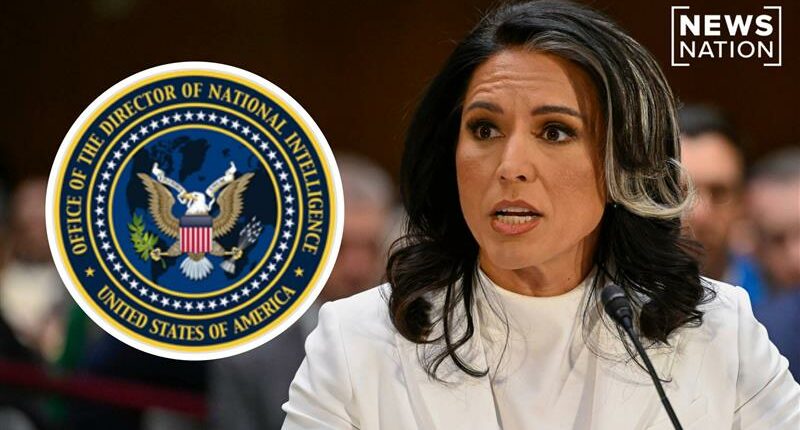Share this @internewscast.com

The Office of the Director of National Intelligence (ODNI) in Washington is set to significantly downsize its workforce by 30% to 40% and decrease its budget by over $700 million each year as part of a new restructuring effort called “ODNI 2.0,” senior intelligence officials have informed .
The changes, which take effect Sept. 30, are the most significant overhaul of ODNI since its creation two decades ago, officials tell .
In a statement about these changes, the Director of National Intelligence, Tulsi Gabbard, described the reorganization as heralding “A new day for ODNI,” emphasizing the agency’s commitment to serving a mission that is bigger than any individual.
Officials explained that the plan aims to cut down on bureaucratic excess while preserving the agency’s essential mission. According to , despite the changing landscape of national security threats, ODNI had seen little change over the past 20 years.
Senior intelligence officials, who have spent several months reviewing the agency, recently briefed President Donald Trump on their findings. This restructuring aligns with the White House’s broader efforts to reduce federal spending.
Affected personnel will be notified Wednesday and will either be terminated or repositioned to other agencies, including the CIA.
The initiative has already reduced ODNI’s size by nearly 30%, with more than 500 staffers “now off the books,” officials said.
Gabbard said in the statement the agency is “committed to supporting you through this process with options and resources to aid your next steps.”
“We stand at a crossroads,” Gabbard said.
The restructuring focuses on six key areas: consolidation, elimination, investment, standards, efficiency and culture.
An official commented on the need for change by saying, “I’ve worked at ODNI, and thoughtful change is overdue,” suggesting that this initiative intends to “restore trust in the intelligence community.”
Senator Mark Warner from Virginia, who is the vice chair of the Senate Select Committee on Intelligence, also remarked, “Twenty years after it was established, there is widespread, bipartisan consensus that the Office of the Director of National Intelligence requires thoughtful reform.”
“The Intelligence Authorization Act directs Director Gabbard to submit a plan to Congress outlining her proposed changes, and we will carefully review her proposals and conduct rigorous oversight to ensure any reforms strengthen, not weaken, our national security. But given Director Gabbard’s track record of politicizing intelligence – including her decision just yesterday to revoke security clearances from career national security officials – I have no confidence that she is the right person to carry out this weighty responsibility.”
The Office of the Director of National Intelligence was established in 2004 to coordinate the nation’s 18 intelligence agencies following recommendations from the 9/11 Commission.
Which centers, programs are being eliminated or restructured
- Foreign Malign Influence Center: Eliminated. Officials said FMIC was “redundant” with existing National Intelligence Council functions.
- National Counterproliferation and Biosecurity Center: Descoped. Core functions will be absorbed into the National Intelligence Council. Officials said addressing global health issues “falls well outside of ODNI’s core mission.”
- Cyber Threat Intelligence Integration Center: Descoped. Functions deemed redundant with existing National Intelligence Council capabilities.
- National Intelligence University: Closed. Programs will transfer to National Defense University.
- External Research Council: Eliminated. Officials called it a hub for “politically appointed partisans” who brought “external biases and politics into the intelligence process.”
- Strategic Futures Group: Eliminated. Accused of pushing “partisan political agenda” instead of fulfilling strategic forecasting mission.
- ODNI’s Reston Campus: Closing and consolidating operations at the main campus
Gabbard said the restructuring will “reestablish trust in the (intelligence community), expose politicization and weaponization of intelligence” and keep the agency focused on protecting Americans.
‘s Kevin Bohn contributed to this report.











